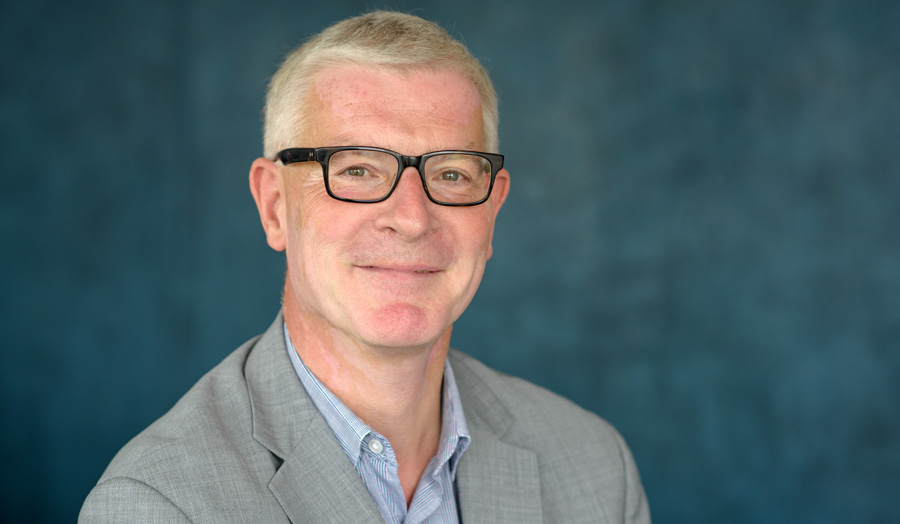"I wanted to work with an institution with a strong purpose and mission, somewhere that was making a real difference to people’s lives."
Date: 22 May 2019
Mark Anderson has been Chair of London Met’s Board of Governors since 2016. Mark has had a varied and successful 30-year career in the publishing and education sectors, primarily with Pearson, the world’s largest education company, and its subsidiaries. He is the author of The Leadership Book, which examines 10 key challenges leaders face.
---
You've undertaken quite a wide variety of roles in your career. Did you have a set career path in mind after you graduated?
When I arrived at University I started studying English Literature, with the intention of becoming a lawyer. However, my view changed while at university and when I graduated I looked at a number of different careers and publishing seemed like a good way to put my degree to use.
You've been involved in education publishing nationally and internationally for more than thirty years. What are the biggest changes you've seen in the sector during that time?
The digital revolution has had a huge impact. When I started in publishing in the mid-eighties the industry was almost entirely print, except for some content on reel-to-reel or cassettes. The first change came in the early 1990s when CD-Roms and interactive videos began to shake things up, but it wasn’t until the advent of the internet that things really started to change.
Fast forward thirty years and not only has there been an explosion in the amount of content but also in the variety of ways people can access it. Modern mobile devices, powered by faster internet speeds, have changed modern life in general and education specifically in so many ways.
What attracted you to London Met?
During my time at Pearson, I had the privilege of visiting lots of education institutions across the world, but I always had the strongest affinity for higher education. I was lucky enough to work and live in Hong Kong and Malaysia, which gave me an even deeper appreciation for the power of diversity.
When I decided to move on from Pearson I was keen to find a new set of challenges that included serving on a University board, but it had to be the right one. I wanted to work with an institution with a strong purpose and mission, somewhere that was making a real difference to people’s lives and as luck would have it, the role of Chair came up at London Met and it seemed like a perfect opportunity.
What are the main functions of London Met's Board, and why are these important?
The Board of any university is essentially there to make sure the institution is run in a lawful and responsible way. We oversee things like the financial plan, senior appointments and most importantly, improving the student experience.
What's been the biggest challenge you've faced as Chair?
I’d say two of the biggest may be yet to come. Brexit and the forthcoming Augar report on higher education are big challenges for all universities. We’re well prepared, but we are not complacent. It is essential that we continue to adapt in a fast-changing and unpredictable environment.
Perhaps the biggest area of concern for me is the welfare of our students and staff. The reports in the press about student mental health are very concerning and I think all universities should do more in this area. We also know that staff are under a lot of pressure too, and stress in the workplace has been a taboo subject for too long. I want us to do what we can to support everyone in our community.
A lot of staff at London Met feel a strong sense of the University's social mobility mission, is that something the Board share too?
Yes, without question. I think that is why most of the members of the Board are here. I’ve been involved in two rounds of recruitment for the Board and every candidate has had a genuine passion for social mobility.
Do you have any highlights from your time on the University's Board?
I’ve loved the graduation ceremonies. You get such an overwhelming sense of achievement on those days and the atmosphere is always electric.
A great memory from last year was a marvellous meeting with Sir Michael Barber, Chair of the Office for Students, where our students shared stories about the journeys they’ve been on and their experiences. It was a very powerful experience and I think it really showed Sir Michael what London Met is all about.
If you were to give one piece of advice to our students looking for a job after graduation what would it be?
Wherever you are in your career always treat people with respect. I feel privileged to have been treated that way. If it’s a value you can keep at the heart of what you do it will always stand you in good stead.

